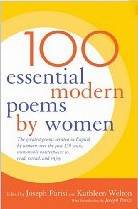 Highlights of Poetry.
Highlights of Poetry.
 Index of poetry.
Index of poetry.
 How to Write Poetry.
How to Write Poetry.
 Haibun.
Haibun.
 Haiku.
Haiku.
 Hay(na)ku.
Hay(na)ku.
 Rengay.
Rengay.
 Tanka.
Tanka.
 Concrete.
Concrete.
 Ghazal.
Ghazal.
 Lai.
Lai.
 Pantoum.
Pantoum.
 Prose poem.
Prose poem.
 Rondeau.
Rondeau.
 Rubáiyát.
Rubáiyát.
 Sestina.
Sestina.
 Skaldic verse.
Skaldic verse.
 Sonnet.
Sonnet.
 Terza rima.
Terza rima.
 Triolet.
Triolet.
 Tritina.
Tritina.
 Villanelle.
Villanelle.
 A.E. Housman.
A.E. Housman.
 Adam Zagajewski.
Adam Zagajewski.
 Aleda Shirley.
Aleda Shirley.
 Anne Carson.
Anne Carson.
 The Beowulf Poet.
The Beowulf Poet.
 Billy Collins.
Billy Collins.
 Billy Collins exercise.
Billy Collins exercise.
 Snorri's Edda.
Snorri's Edda.
 Carl Dennis.
Carl Dennis.
 Charles Atkinson.
Charles Atkinson.
 Chase Twichell.
Chase Twichell.
 Corey Marks.
Corey Marks.
 François Villon
François Villon
 Franz Wright.
Franz Wright.
 Galway Kinnell.
Galway Kinnell.
 Gary Young.
Gary Young.
 The Gawain Poet.
The Gawain Poet.
 Jack Gilbert.
Jack Gilbert.
 James Tate.
James Tate.
 Jane Hirshfield.
Jane Hirshfield.
 Jean Vengua.
Jean Vengua.
 Jorie Graham.
Jorie Graham.
 J. Zimmerman.
J. Zimmerman.
 J. Zimmerman (haiku).
J. Zimmerman (haiku).
 J. Zimmerman (tanka).
J. Zimmerman (tanka).
 Karen Braucher.
Karen Braucher.
 Karl Shapiro.
Karl Shapiro.
 Jane Hirshfield.
Jane Hirshfield.
 Kay Ryan.
Kay Ryan.
 Kay Ryan's style.
Kay Ryan's style.
 Kay Ryan The Best Of It: New and Selected Poems.
Kay Ryan The Best Of It: New and Selected Poems.
Laureate Poets:
 Britain;
Britain;
 USA.
USA.
 Len Anderson.
Len Anderson.
 Les Murray.
Les Murray.
 Li-Young Lee.
Li-Young Lee.
 Linda Pastan.
Linda Pastan.
 Louise Glück.
Louise Glück.
 Margaret Atwood.
Margaret Atwood.
 Margaret Atwood essays.
Margaret Atwood essays.
 Mary Oliver.
Mary Oliver.
 May Sarton.
May Sarton.
 Nordic Skalds.
Nordic Skalds.
 Pulitzer Poetry Prize (U.S.A).
Pulitzer Poetry Prize (U.S.A).
 Richard Hugo.
Richard Hugo.
 Robert Bly.
Robert Bly.
 Sappho.
Sappho.
 Sara Teasdale.
Sara Teasdale.
 Shiki (haiku).
Shiki (haiku).
 Snorri's Edda.
Snorri's Edda.
 Stephen Dunn.
Stephen Dunn.
 Ted Kooser.
Ted Kooser.
 W.S. Merwin.
W.S. Merwin.


|
 100 Essential Modern Poems By Women (2008)
100 Essential Modern Poems By Women (2008)
edited by Joseph Parisi and Kathleen Welton. |